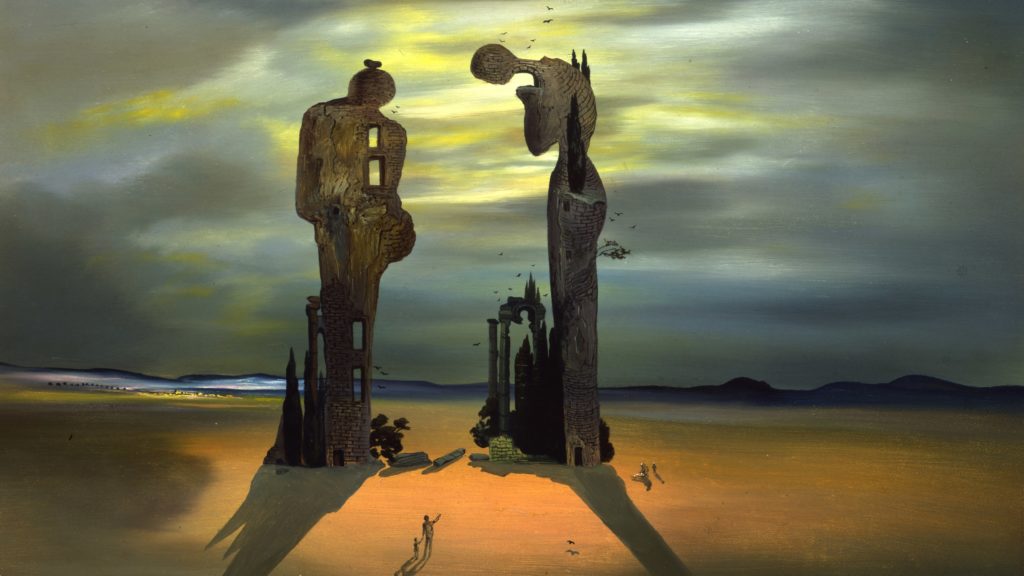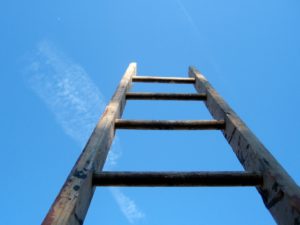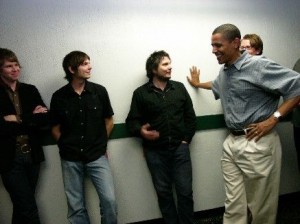
When you play video games like World of Warcraft or any of the Legend of Zelda games, the world of the game is finite. There is an “edge” somewhere that the player can’t cross. Sometimes the game designers make it look like a mountain or a wall, while other times it’s just an invisible barrier that prevents the character from crossing. If you’ve played video games, you know what I’m talking about.
When you are an ADHD person, you have those barriers in real life. Test coming up? Sometimes you can’t study. Work to do? Sometimes you can’t write that email. Everyone looking at you is like a person watching a video game with an invisible wall: “just jump over that wall, what’s stopping you?”
When people with ADHD are advised by folks that aren’t familiar with ADHD, there’s a lot of bad judgment that gets passed on and (sadly) adsorbed internally by the ADHD people.
“You could study if you just apply yourself.”
“You could finish that paper if you just do it.”
“Stop procrastinating and do the work.”
“Don’t be lazy, do your assignment.”
None of those people know what it’s like to stare at a blank screen, a blank page, or an open book, and know what its like to be unable to advance. Sometimes our parents, our teachers, our friends (maybe with good intent) tell us to go go go do it do it, but they don’t know that, for us, that portion of the game is not there. It’s not programmed.
I think, for many of us who have ADHD, it is impossible to explain that. People who don’t experience it have a hard time understanding that sometimes, we can’t.
So I’ve come up with the Invisible Broomstick to explain it.
*** The Invisible Broomstick ***
Imagine you see your friends and colleagues walking through a door into a lecture hall. Denise walks through. Mike walks through. Salim walks through. My turn! Time to walk through the door.
But I can’t. I get stuck. Mike and Denise and Salim are watching me, encouraging me to walk through the door.
“C’mon Mark, just put one foot in front of the other.”
“You can do it, Mark! You did it yesterday!”
Nope. I’m stuck.
My friends and loved ones don’t realize I’m carrying an invisible broomstick, and when I try to walk through the doorjamb, the broomstick gets caught.
That’s ADHD (or one way it manifests) – I can’t walk through that door, I can’t do that assignment, I can’t start writing, I can’t make myself read the background papers, I can’t move forward because I am holding this invisible broomstick. It is preventing me from doing The Thing I Need to Do (“TTINTD”).
Getting stuck, at least for me, manifests in one of two ways. Either 1) I know I have to to do The Thing and I can’t seem to make myself do it, or 2) I totally forgot that The Thing even exists. With the latter, I can forget that I needed to do The Thing *immediately*. It’s breathtaking. Give me a task, and I’ll forget it within 30 seconds. Hell, I have started to write down a task so I don’t forget, and I’ll forget it WHILE WRITING IT DOWN. I am the Usain Bolt of forgetting The Thing I Need to Do.
***
Imagine you’re holding a real broomstick. You can make it through a doorway if you carry it in a certain orientation, no problem. Now try walking through the door carrying it parallel to the ground and parallel to your chest. You get stuck. But if you rotate the broomstick, you can get through.
Sometimes I am able to walk through the door, I AM able to do TTINTD. On those days, in those instances, my broom is oriented correctly to get me through the door.
Listen, I know I have ADHD. I know I’m carrying this broomstick. I’m getting better at learning how to turn this broomstick around when I find myself stuck, using medication and therapy and shitty shitty analogies. It’s not perfect, and I have days when I am legit stuck like a turtle on its back, but it’s not as bad as it used to be.
But before? Before I knew I was holding this broomstick? Dang, I was angry at myself all the time.
“Why can’t I just walk through this door?”
“Why can’t I just study?”
“Why can’t I just complete this memo like a normal person?”
“Why am I so lazy?”
“Why am I such a procrastinator?”
“Why can’t I just remember to exercise?”
“What could my life have been if I could just WORK?”, etc.
Man. The amount of anger you have at yourself when you don’t realize you’re ADHD, that you’re holding a broomstick, is wild.
You trick yourself into thinking that everything you want in life is through that door and that the reason you’re not rich or happy or healthy or a productive human being is because of your moral failings.
Nah, bro. You’re holding a broomstick. And you gotta learn to use it.
***
There are two ways to get into that room when you are carrying an invisible broomstick.
A. Turn the broomstick so you can get in through the door.
This is ideal, because you go through the same door as everyone else. It’s also tough, because you have to know you’re holding the invisible broomstick, that you have ADHD. You also have to know how to turn it, how to manipulate the broom, how to manipulate that bag of salt and fat that you have in your skull so that it lets you walk through that door.
That’s why you can sometimes do The Thing on one day but not on other day: Your broomstick is oriented differently from day to day. Some days you can walk through without a problem, but another day (you’re hungover, you got poor sleep, you’re sad, you’re scared) you ain’t going though that doorway. It makes having ADHD maddening if you don’t know whats happening: “I wrote my English term paper so beautifully, why am I unable to work on my final physics project?”
Medication can help; medication like Ritalin and Bupropion can shorten the broomstick. A short broomstick means you get fit through more doors without knowing how to manipulate your broomstick. It makes it easier to get through the door in different orientations, but man: You still have to do the work to learn how to swing the broomstick. If you take meds but don’t put in the work to learn how to use it (with a therapist, a support network, with self-reflection), you’ll still end up stuck on a lot of doors, just with a smaller broom.
Now, if you don’t know how to get a therapist, or how to get the right medication for you, or if you don’t even *know* you’re holding an invisible broom, you have to do the other thing: You have to find other doors.
B. Finding other Doors.
Ley’s say that you can’t turn the broom, you may not even know you’re holding the dang thing; you just know you’re not able to walk through the door with your colleagues. So what do you do?
Well, you can give up trying to go through any doors. I think I lot of us do this, sadly. I know that I’ve gone through plenty of moments of wondering What If I Never Amount to Anything, and I suspect it’s common for folks that are carrying this broomstick, carrying this ADHD in their heads.
But, if you don’t want to give up, you have to back up and find another door. There are garage doors, there are gymnasium doors, there are cathedral doors. You end up looking for places you can fit in without reorienting your broomstick (either because you don’t know how or because it is so, so emotionally draining to turn the thing).
For most of my life, for all of my careers, that’s what I’ve done. I’ve backed up and looked for another door.
I’ve left, what, a dozen careers behind? I’ve left, what, a dozen buildings behind because I couldn’t walk through the doors? Back up and try again, back up and try again. I’m a palaeontologist. I’m a cab driver. I’m a lawyer. I’m a professor. I’m none of em; I’m a dude with a broomstick, and I’m learning how to swing it. I’m learning how to fly with it.
***
A weird thing happens with you realize you’ve got a broomstick: You start seeing people with broomsticks everywhere. You see ADHD in friends, family, in historic figures, in fictional characters. It’s a sort of Baader-Meinhof phenomenon, and it makes ADHD or other types of neurodiversity seem more common. It can be illusional, and it can lead to placing your/my experiences in the center of other people’s experiences.
I don’t want to make it seem like I believe I think anything I wrote here is definitive, or even common. Hell, I may realize that all this wasn’t even my experience, in the end.
But, I know that that I do have a Thing that prevents me from doing The Thing sometimes, and moving this invisible broomstick in my head and in my hands is my attempt to do better.
I also know that some of you, or some of your loved ones, have an invisible broomstick. And I hope that you know that, just because you don’t see it, just because you don’t know what it’s like to have a broomstick, it doesn’t invalidate the presence of that broomstick in their heads. It is not an excuse to be lazy, or depressed, or unsuccessful. In fact, it can be the opposite.
You can weaponise the broomstick. You can weaponize ADHD.
***
Later, I will post Part 2, Swinging the broom: Weaponizing ADHD.












